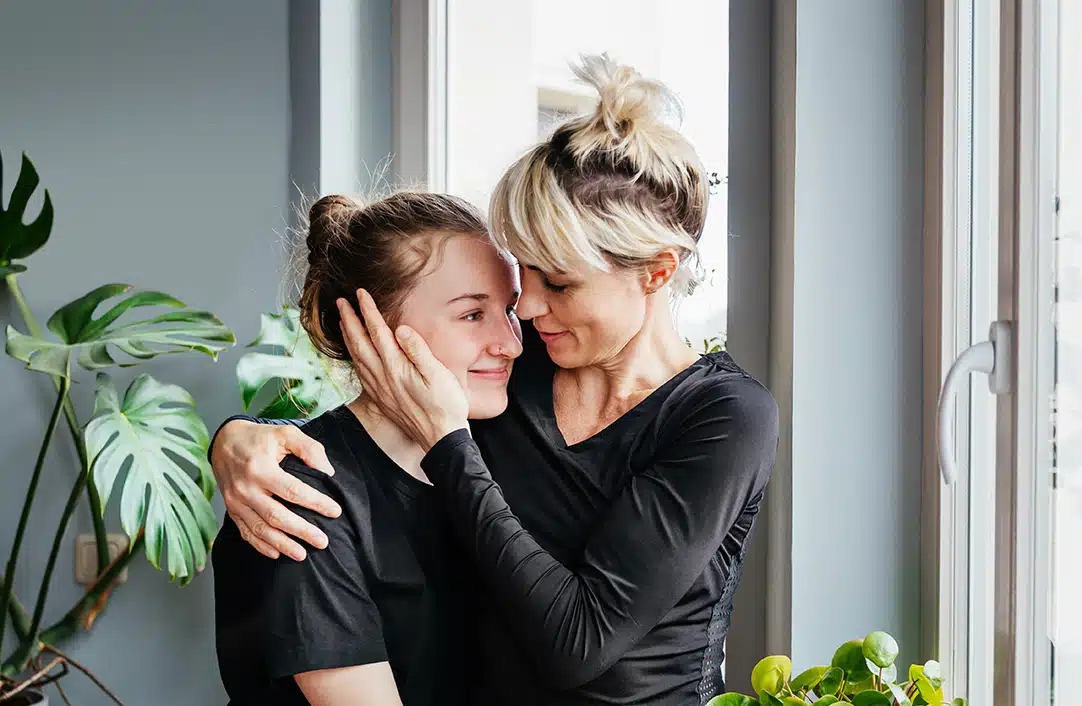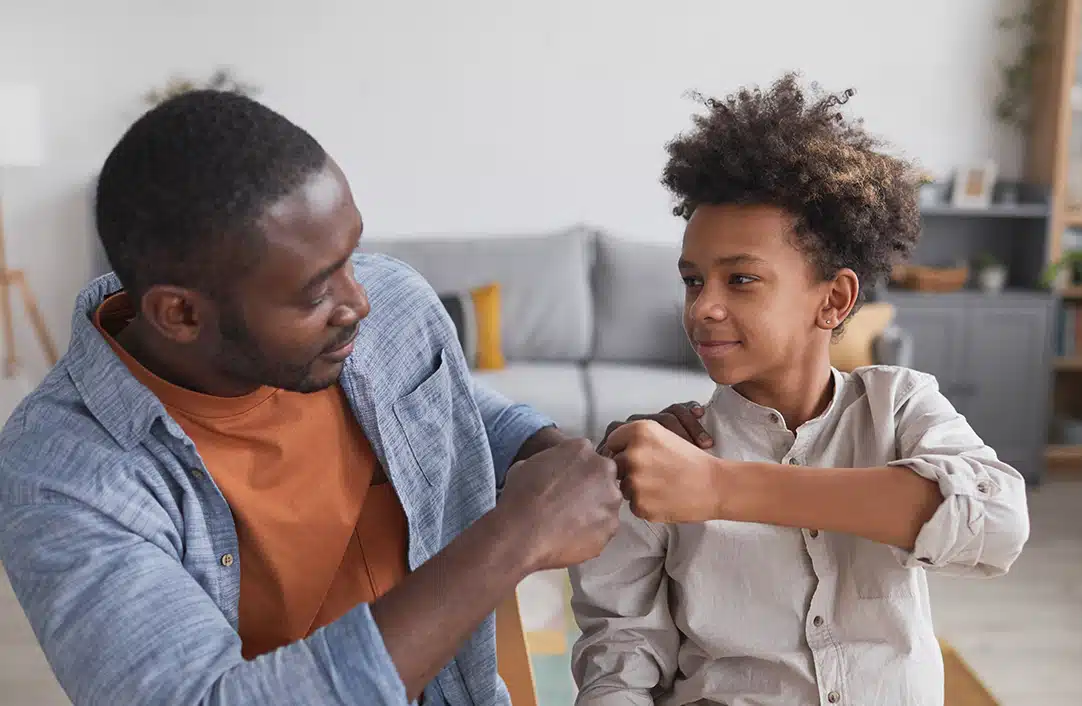Saprea > Online Prevention Resources > Prevention Resources: Talk

Communication is at the core of parenting and supporting growing children. When you give children opportunities to discuss what is going on in their life, their development is greatly enhanced. Do the children you care about have regular opportunities to discuss with you what they are experiencing, thinking, and feeling? When they have a crisis, will they confide in you?
You can help reduce the risk of child sexual abuse just by fostering a strong, consistent pattern of communication with the children and youth you care about. You reinforce a sense of safety and belonging as you express genuine interest in listening to your child’s opinions, ideas, and concerns. You also signal to your child that what they say matters and that you hold confidence in the things they tell you, which can be a critical element should your child experience something that they can’t handle by themselves.
You can learn so much about your child just by talking with them. Conversations can be a great way to build trust, connection, and to identify things to be watchful of.
As you Talk to your child, consider these recommendations:
Respond, Not React
One challenge all parents face is maintaining control of their own feelings while supporting children who grapple with intense emotions. In every relationship, there are topics or situations that naturally bring out heightened emotions or even tension. You may even inadvertently dampen your child’s willingness to talk about things because your own emotions are running high, or because of snap decisions that have been made in the past. You’re a parent who is learning along the way, so it’s understandable that some conversations are going to push every button you’ve got. These suggestions may help to give you some space to have the most productive conversation possible.
Is your child trying to tell you something important? Are your emotions running high?
01
Take a deep breath.
02
Pay attention to what you are feeling.
03
Listen.
04
Validate your child’s feelings.
05
Ask questions.
06
Set or reinforce expectations.
Explain the Reasons Behind Decisions
Children and teens benefit when parents take the time to explain the reasons for their decisions and expectations. This can be a simple explanation of values that are connected to the situation at hand. When parents foster mutual understanding, even in small ways, they promote open communication and lay the groundwork for a collaborative approach.
While there are certain situations where immediate explanations are not possible (such as when you are preventing your child from unsafely darting into a busy road), you can always take time afterwards to reflect with them why you acted or made the decision you did.
When you explain decisions to your child, you could consider using these strategies:
Provide some context
Be clear and concise
Use age-appropriate language
What this sounds like:
Pilar is teaching her children with different ages about the boundaries surrounding anatomy. She can use more abstract concepts with her older teen, but chooses to be more concrete with her younger children.
For her preschool age daughter:
For her elementary school age son:
For her teens:
Use examples or visuals, when helpful
What this looks like:

Homework is done.

Chores are done.

Someone else is in the room with you.

Screen is visible to others.
Encourage questions and discussion
Connect decisions to values and long-term goals
What this sounds like:
Darrell is encouraging his teen son to be selective of the sexual activity he pursues.
Offer alternatives or compromises when appropriate
Get to Know Your Kids

Activity:
Introduce Your Child
- My child enjoys:
- Three characteristics they often show are:
- They are motivated by:
- One of the opinions that they value most is:
- One of the things they worry about is:
- What they would like to do in the future includes:
Examples of Different Questions You Can Use:
- If you got to have the same food every single day for a year, which would you choose?
- What are you most excited about when you turn ____ this next year?
- Who is your best friend that is around your age? Why did you choose to be their friend?
- If you could change one thing about yourself for a week, what would it be?
- What does it mean to be a good person?
- What is the hardest thing you had to do so far this week?
- If you could snap your fingers and improve the world, what would you fix first?
- Who would you miss the most if they had to take a year-long trip away from you?
- What is the nicest thing you have done for someone else this week?
- What is your favorite type of weather? Why?
Asking children about their opinions on specific topics can offer some valuable insight into what they think and feel. This helps children have a place to express themselves and explain how they view the world. Remember, you don’t always have to agree with or challenge what they share; just listen. If they share an opinion that is concerning to you, keep listening. Revisit the topic on another day in a calm way.
When you were growing up, you may have heard this question from your parent: “How was school today?” Sometimes we default to a simple question like that to check in with our kids and hope they will share more. But the truth is, sometimes we can get more creative with our questions.
Having conversations like these helps prepare parents and their children to discuss more serious matters, even sexual abuse.
Apologize to Your Child When You Make a Mistake
Some good principles to model as you apologize include:
Take responsibility
What this sounds like:
Empathize and validate their feelings
What this sounds like:
Communicate openly
What this sounds like:
Problem-solve and make amends
What this sounds like:
Consistently follow through
What this sounds like:
Being a Positive Role Model
Continue Learning How to Prevent Child Sexual Abuse:

Educate

Monitor
